On Wednesday, June 17th at 12:00pm ET Dr. Reid Robison, CEO of Tute Genomics delivered our inaugural Virtual Grand Rounds in Pediatric Genomic Medicine, a bi-monthly Tute Genomics webinar series where leading medical professionals will continue to present pediatric cases recently solved using next-generation sequencing technologies.
ABSTRACT
Significant cost reductions and rapid advancements in next-generation sequencing (NGS) technology have led to increased use of exome sequencing in clinical settings. Computational tools for interpreting human genome data have also progressed, opening a new door for precision, genome-guided medicine. This is especially true in rare and undiagnosed genetic diseases where it is often not practical to order single gene tests because of the thousands of known genetic conditions.
Here we present the case of Leah, a 2-year-old female with a history of early onset epileptic encephalopathy and multiple medical and neurodevelopmental comorbidities. Exome sequencing was performed on the patient, her parents, and her unaffected siblings. A rare de-novo mutation was identified in SCN8A, a gene involved in sodium transport that has previously been implicated in a number of children with this clinical presentation. Leah’s medical history will be presented, along with a walk through of how the genetic diagnosis was made. Further, the implications for the family in terms of support, potential treatment, and outcome will also be covered.
ABOUT THE PRESENTER
 Reid Robison, MD, MBA is CEO and co-founder of Tute Genomics. Dr. Robison is a board-certified psychiatrist, with fellowship training in both neurodevelopmental genetics and bioinformatics. After residency and fellowship training at the University of Utah, Dr. Robison joined as tenure track faculty where he co-directed a molecular genetics lab, studying the genetic basis of autism and other neurodevelopmental disorders using next-generation sequencing technology. Dr. Robison also co-founded the Utah Foundation for Biomedical Research (and its associated Institute for Genomic Medicine), a 501(c)3 non-profit organization dedicated to finding the genetic causes of rare conditions, as well as advancing the field of genomic medicine by encouraging the use of CLIA-certified next-generation sequencing techniques. He was part of the team that discovered Ogden Syndrome, and has worked with a number of disease pedigrees using whole genome sequencing data to find the etiology of other unknown genetic syndromes. Dr. Robison is an adjunct faculty member at both Brigham Young University and the University of Utah.
Reid Robison, MD, MBA is CEO and co-founder of Tute Genomics. Dr. Robison is a board-certified psychiatrist, with fellowship training in both neurodevelopmental genetics and bioinformatics. After residency and fellowship training at the University of Utah, Dr. Robison joined as tenure track faculty where he co-directed a molecular genetics lab, studying the genetic basis of autism and other neurodevelopmental disorders using next-generation sequencing technology. Dr. Robison also co-founded the Utah Foundation for Biomedical Research (and its associated Institute for Genomic Medicine), a 501(c)3 non-profit organization dedicated to finding the genetic causes of rare conditions, as well as advancing the field of genomic medicine by encouraging the use of CLIA-certified next-generation sequencing techniques. He was part of the team that discovered Ogden Syndrome, and has worked with a number of disease pedigrees using whole genome sequencing data to find the etiology of other unknown genetic syndromes. Dr. Robison is an adjunct faculty member at both Brigham Young University and the University of Utah.






